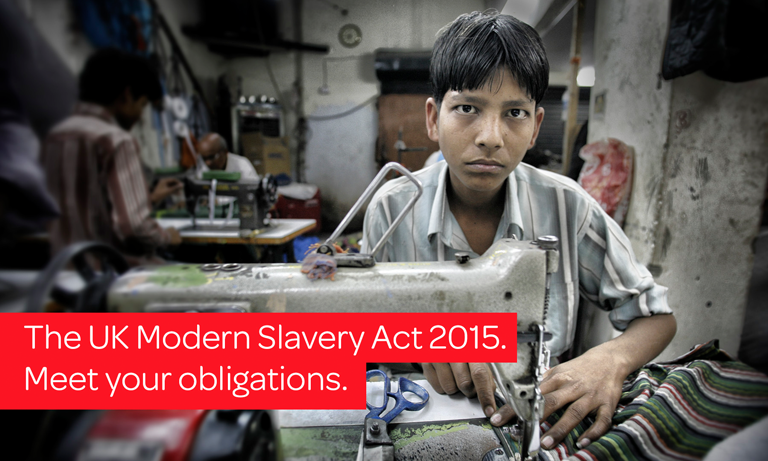 Under section 54 of the Modern Slavery Act 2015, companies must show what they have done to make sure that slavery or human trafficking does not take place in their business or in any companies in their supply chain
Under section 54 of the Modern Slavery Act 2015, companies must show what they have done to make sure that slavery or human trafficking does not take place in their business or in any companies in their supply chainAny commercial organisation with an annual turnover of at least £36m will have to make the statement ‘as soon as possible’ after 5 April.
Under section 54 of the Modern Slavery Act 2015, companies must show what they have done to make sure that slavery or human trafficking does not take place in their business or in any companies in their supply chain. Their statement can also simply say that they have not taken any such steps.
Employers will need to publish the statement in a prominent position on the company website or make it available within 30 days of a request in writing. It must also be signed by a director. The statement must include information about the firm’s policies regarding slavery and human trafficking in both its own business and in its supply chains.
In particular, the statement needs to highlight any part of the business or its supply chain wherein there could be a risk of human trafficking or slavery and any measures that have been taken to assess and manage such risks.
The statement should clearly demonstrate the effectiveness of any measures taken to ensure that slavery or human trafficking are not taking place and provide details of the training available to its staff in relation to these issues.
Careful consideration is clearly required in preparing the statement and in making sure that the company has a valid anti-slavery policy; otherwise, there is a significant risk of reputational damage. This may result in lost orders or clients in the event that slavery is identified in a supply chain or where a firm is not seen to be taking its responsibilities seriously.
To ensure that the requirements are handled in a professional manner, it is essential that firms fully engage senior managers and train key personnel, particularly in human resources. With the support of these staff members, it should be possible to adhere to the regulations and to produce a valid statement.
Key points relating to the anti-slavery statement itself include:
- A senior person will need to be in charge of preparing the statement.
- A good starting point may be to introduce the company and its commitment to managing the risks of modern slavery or trafficking.
- The statement can continue with information about what the business does and the nature of its supply chain, including global locations.
- This should help to identify countries or activities that present a significant risk of slavery or trafficking.
- The statement should explain who is responsible for the firm’s anti-slavery initiatives and how it conducts risk assessments, investigations and staff training.
- It should also state how the business ensures that its suppliers adhere to the policies and the steps it takes against those who do not meet the required standards.
This statement should be approved by the board of directors before being signed.
Join Over 40,000 Recruiters. Get our latest articles weekly, all FREE – SEND ME ARTICLES
Recruiters love this COMPLETE set of Accredited Recruitment & HR Training – View Training Brochure








